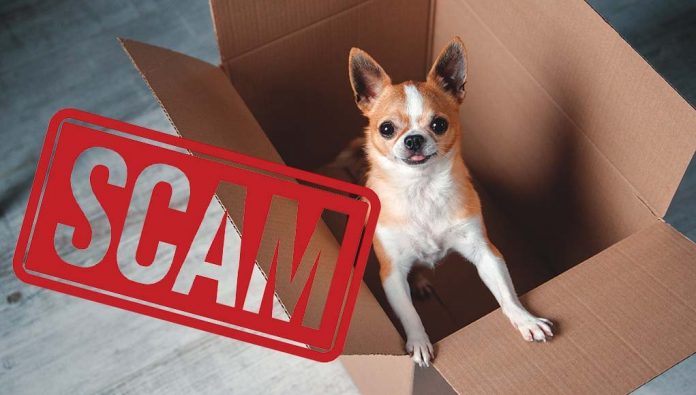Some families obeying stay-at-home orders have turned to the internet to look for a pet, thinking they would have plenty of time to help the pet adjust to its new surroundings. Many have come across scammers who advertise on websites for animals don’t exist and are never shipped. The coronavirus (COVID-19) pandemic has given scammers reasons to ask for money or explain why they can’t see the pet in person before heartbroken, would-be pet owners figure out they have been conned.
Puppy scams like these were the subject of a 2017 in-depth investigative study by Better Business Bureau (BBB), and they are prolific during the holidays. New data from BBB Scam Tracker shows that these scams have spiked since COVID-19 took hold in the U.S., with more reports about fraudulent pet websites in April than in the first three months of the year combined.
Ozark Radio News spoke with BBB Regional Director Stephanie Garland:
BBB’s earlier study found that for these types of frauds to be successful, it’s usually dependent on bogus, often sophisticated advertisements to hook unsuspecting consumers. Experts believed, at that time, that at least 80% of the sponsored advertising links that appear in an Internet search for pets may be fraudulent.
Actual numbers of pet fraud may be much higher than reported, because many victims either choose not to file complaints or do not know where to turn for help.
Many victims who contacted BBB Scam Tracker reported they wanted to adopt a puppy in order to ease their isolation and brighten their lives during the pandemic.
Victims were often told that they needed to send money for special climate-controlled crates, insurance and a (non-existent) COVID-19 vaccine. There also were several instances where the consumer wanted to see or pick-up the animal but was told that wasn’t possible due to COVID-19 restrictions.
A St. Charles, Missouri, woman reported losing more than $1,100 to two different puppy scammers in April 2020. She said the first seller agreed to sell her a pug puppy for $500, including shipping, and had her pay with a prepaid gift card he instructed her to buy at Walmart. The woman told BBB the seller subsequently notified her that COVID-19 had delayed shipment of the puppy and would not issue her a refund; she tracked the gift card and found that it had already been spent at a Target store in Texas.
The woman said she subsequently made contact with another seller who agreed to sell her a pug puppy for $620, including shipping. She said after she paid half the fee, a third-party shipper contacted her and demanded $750 for a climate-controlled crate; when he offered to split that fee with her, she sent him $300. The seller and shipper subsequently both turned out to be fraudulent, and the woman did not receive refunds or either puppy.
“This seller absolutely played on my emotions and vulnerability,” the woman told BBB. “I’m a highly educated person, but I’ve never felt so stupid in my entire life.”
Tips for avoiding puppy scams:
- Don’t buy a pet without seeing it in person. If that isn’t possible, conduct an internet search of the picture of the pet you are considering. If the same picture appears on multiple websites, its likely is a fraud. You also can search for text from ads or testimonials, to see if the seller copied it from another website.
- Don’t send money by Western Union, MoneyGram, a cash app like Zelle or a gift card. These payment methods offer no recourse and no way to get your money back if you are the victim of a fraud. Fraudsters may claim to accept credit cards, but may steal your credit card information to use it in other scams or inform you that payment didn’t go through and request the payment via wire service or gift cards.
- Research prices for the breed you are interested in adopting. If a purebred dog is advertised for free or at a deeply discounted price, and then other payment is required for services like vaccination or shipping, it could be a fraudulent offer.
- Consider reaching out to a local animal shelter. Especially during this time of quarantine, many shelters are looking for fosters to help relieve the animal’s stress and reduce overcrowding at their facilities. Humane Society of the United States refers consumers to local shelters.
- If you think you have been scammed, report it to BBB Scam Tracker and the Federal Trade Commission. You also can report it to petscams.com, which catalogues puppy scammers, tracks complaints and endeavors to get fraudulent pet sales websites taken down.






